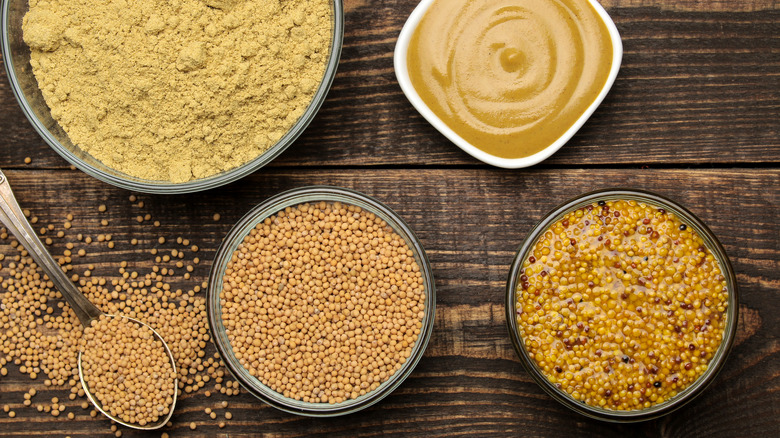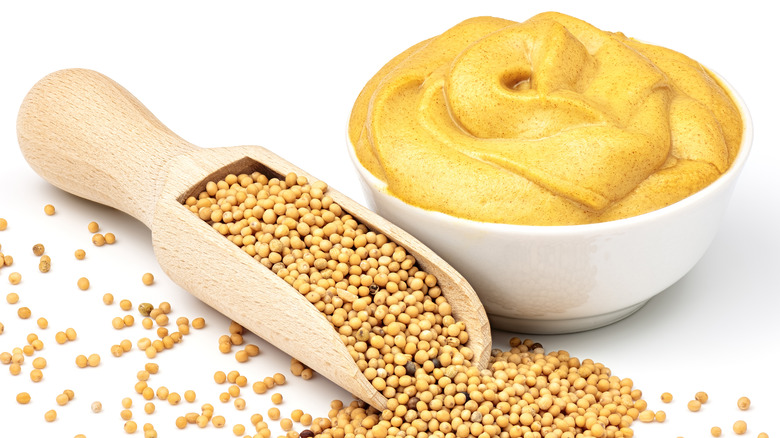Why Homemade Mustard Doesn't Taste Like Store-Bought
Mustard is a condiment that although surprisingly simple to make at home (via GBH), is undeniably complex in versatility. Factors like seed varietal, spice blend, temperature, and soaking liquid all play a big part in the mustard's final flavors (per Serious Eats). The site says that results can vary tremendously, adding that yellow mustard seeds are mild while brown and black seeds are more pungent. In addition, mustard seeds respond differently to various liquids in intensity and heat.
Food Republic agrees that vinegar has a mellowing effect while water enhances the naturally occurring spice. Once cracked and soaked, a natural enzyme is activated, releasing the heat mustard is known for.
If these elements weren't enough of a reason to consider mustard complex, there's more. Read on to learn about why homemade mustard doesn't taste like store-bought and follow these tips to avoid an unpleasant experience for your tastebuds.
With potency comes bitterness
With a mustard seed shortage on the rise, according to Insider, making homemade mustard could become essential and just the kick needed to use up that two-pound bag of mustard seeds ordered online during your 2020 pickling obsession.
Homemade mustard is simple, but the caveat is it tends to be overwhelmingly pungent when seeds are freshly cracked. This is precisely why homemade mustards are more potent than store-bought versions, according to Serious Eats. Not only is fresh mustard stronger, but an unpleasant bitterness is activated at the onset of cracking the seeds. Serious Eats reports "raw mustard seeds have a face-warping bitter quality that tastes like it'll scare any illnesses right out of you", adding that it takes two to three days for this bitterness to subside before using.
Chef David La Fevre of L.A. 's M.B. Post has been crafting stout beer, red wine, and horseradish mustards since the restaurant's opening in 2011. La Fevre advises to "keep a glass of water on hand for the first taste. After three weeks, make a ham sandwich."
Don't let the potency or bitterness deter you from making mustard at home. Luckily, as mustard ages, these qualities mellow — eventually becoming more similar in taste to shelf mustards. Just allow your best new homemade condiment some time to settle before its debut at your next gathering.

